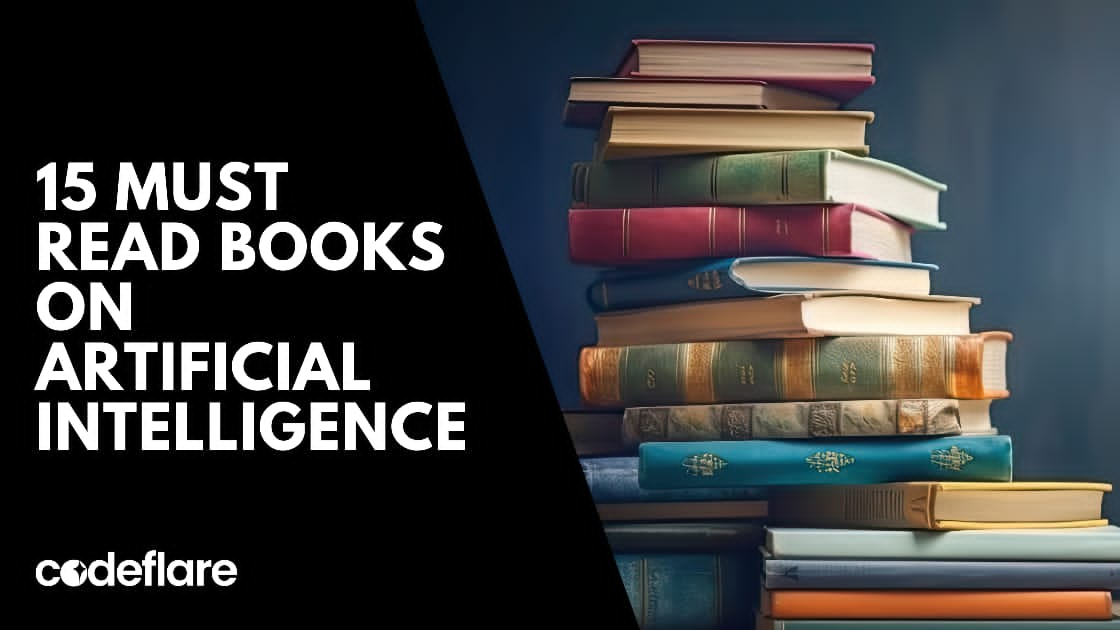
Artificial Intelligence (AI) is reshaping industries, driving innovation, and transforming our daily lives. For those looking to deepen their understanding of AI, numerous insightful books offer valuable perspectives on its concepts, applications, and future implications. Here are 15 must read books on Artificial intelligence, ranging from foundational texts to cutting-edge explorations.
1. “Artificial Intelligence: A Modern Approach” by Stuart Russell and Peter Norvig
Often considered the definitive textbook on AI, this comprehensive guide covers a wide range of AI topics, including machine learning, robotics, and ethical considerations. It is an essential resource for anyone studying AI or seeking a broad understanding of the field.
2. “Superintelligence: Paths, Dangers, Strategies” by Nick Bostrom
Nick Bostrom explores the potential future scenarios of AI development and the associated risks. This thought-provoking book delves into how superintelligent AI could impact society and offers strategies for ensuring its safe development.
3. “Deep Learning” by Ian Goodfellow, Yoshua Bengio, and Aaron Courville
A seminal text in the field of deep learning, this book provides an in-depth look at the algorithms and architectures that power modern AI systems. It’s a must-read for anyone interested in the technical aspects of AI.
4. “The Age of Em: Work, Love, and Life when Robots Rule the Earth” by Robin Hanson
Robin Hanson imagines a future dominated by brain emulation and explores how such a world could function. This book presents a unique perspective on the implications of advanced AI and robotics on human society.
5. “AI: A Very Short Introduction” by Margaret A. Boden
Part of the Very Short Introductions series, this book offers a concise overview of AI, its history, and its impact on various fields. It’s an excellent starting point for those new to AI.
6. “Machine Learning: A Probabilistic Perspective” by Kevin P. Murphy
This book provides a thorough introduction to machine learning from a probabilistic viewpoint. It covers a range of techniques and algorithms, making it a valuable resource for both beginners and advanced practitioners.
7. “Life 3.0: Being Human in the Age of Artificial Intelligence” by Max Tegmark
Max Tegmark explores the future of AI and its potential impact on humanity. The book addresses philosophical questions about AI’s role in shaping our future and discusses how we can navigate this transformative technology.
8. “Grokking Deep Learning” by Andrew W. Trask
Andrew W. Trask offers a hands-on guide to understanding deep learning concepts. The book is designed to be accessible to beginners and provides practical examples to help readers grasp complex topics.
9. “Architects of Intelligence: The Truth About AI from the People Building It” by Martin Ford
In this book, Martin Ford interviews leading AI experts to gain insights into the future of AI and its potential impact on various sectors. It provides a behind-the-scenes look at the people shaping the future of technology.
10. “Human Compatible: Artificial Intelligence and the Problem of Control” by Stuart Russell
Stuart Russell discusses the challenges of aligning advanced AI systems with human values and ensuring they act in our best interests. This book addresses key issues related to AI safety and ethics.
11. “The Master Algorithm: How the Quest for the Ultimate Learning Machine Will Remake Our World” by Pedro Domingos
Pedro Domingos explores the concept of a “master algorithm” that could unify all learning algorithms. The book provides insights into how such a breakthrough could revolutionize various aspects of our lives.
12. “Artificial Intelligence: Foundations of Computational Agents” by David L. Poole and Alan K. Mackworth
This foundational text covers the core principles of AI and computational agents. It is suitable for those seeking a deeper understanding of the theoretical underpinnings of AI.
13. “Weapons of Math Destruction: How Big Data Increases Inequality and Threatens Democracy” by Cathy O’Neil
Cathy O’Neil examines the impact of algorithms and big data on society, highlighting the ethical concerns and potential dangers associated with their use. This book is crucial for understanding the broader implications of AI.
14. “Competing in the Age of AI: Strategy and Leadership When Algorithms and Networks Run the World” by Marco Iansiti and Karim R. Lakhani
Marco Iansiti and Karim R. Lakhani explore how AI is transforming business strategy and leadership. The book provides practical insights into how organizations can leverage AI to gain a competitive edge.
15. “The Fourth Industrial Revolution” by Klaus Schwab
Klaus Schwab discusses how the fourth industrial revolution, driven by technologies like AI, is reshaping industries and societies. This book offers a broad perspective on the transformative effects of emerging technologies.
Conclusion
These must-read books on artificial intelligence cover a wide range of perspectives, from foundational theories to speculative futures. Whether you’re a beginner or an experienced professional, these readings will deepen your understanding of AI and its profound impact on our world.
The rise of Server-side JavaScript






